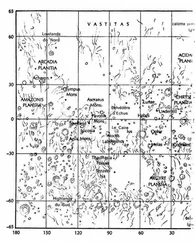Kim Robinson - Shaman
Здесь есть возможность читать онлайн «Kim Robinson - Shaman» весь текст электронной книги совершенно бесплатно (целиком полную версию без сокращений). В некоторых случаях можно слушать аудио, скачать через торрент в формате fb2 и присутствует краткое содержание. Город: New York, Год выпуска: 2013, ISBN: 2013, Издательство: Orbit, Жанр: Фантастика и фэнтези, Историческая проза, на английском языке. Описание произведения, (предисловие) а так же отзывы посетителей доступны на портале библиотеки ЛибКат.
- Название:Shaman
- Автор:
- Издательство:Orbit
- Жанр:
- Год:2013
- Город:New York
- ISBN:9780316235570
- Рейтинг книги:4 / 5. Голосов: 1
-
Избранное:Добавить в избранное
- Отзывы:
-
Ваша оценка:
- 80
- 1
- 2
- 3
- 4
- 5
Shaman: краткое содержание, описание и аннотация
Предлагаем к чтению аннотацию, описание, краткое содержание или предисловие (зависит от того, что написал сам автор книги «Shaman»). Если вы не нашли необходимую информацию о книге — напишите в комментариях, мы постараемся отыскать её.
From the New York Times bestselling author of the Mars trilogy and 2312 comes a powerful, thrilling and heart-breaking story of one young man's journey into adulthood -- and an awe-inspiring vision of how we lived thirty thousand years ago.
Shaman — читать онлайн бесплатно полную книгу (весь текст) целиком
Ниже представлен текст книги, разбитый по страницам. Система сохранения места последней прочитанной страницы, позволяет с удобством читать онлайн бесплатно книгу «Shaman», без необходимости каждый раз заново искать на чём Вы остановились. Поставьте закладку, и сможете в любой момент перейти на страницу, на которой закончили чтение.
Интервал:
Закладка:
In new snow they wore snowshoes. These were bigger and better than the ones the Wolf pack had, made of single long spruce branches bent in a full curve to a point behind the heel, and the ends lashed together. Across the widest part of the bend, two hard sticks had been lashed. An open weave of leather strips was tied to the outer frame, making the surface that rode on the snow. Leather straps were tied to the cross stick and used to tie their boots to the forward cross stick. The snowshoes were light and strong, and floated a walker over all but the softest snow. They were better on flats than on traverses. As when on the cruder snowshoes the Wolf pack used at home, while descending a snowy slope one could slide down on one foot until enough snow piled up under that snowshoe to bring it to a halt, and just before that happened one shifted to the other foot, thus glissading down the slope in long slow steps. In the steep ravines these dreamy glissades added to Loon’s sense of being a giant on the land.
Put your head down and get through the days. Eat as much as you can stand to. It was hard to eat, there was a permanent clutch in his belly, though sometimes he also felt a raging hunger. He couldn’t tell hunger from nausea, and so ended up getting very cold at night, even to the point of shivering from time to time. No one can shiver for long.
Day followed day. The winter solstice came and went. Around that day, the jende men let one of their captive wolves out of their enclosure and surrounded him and abruptly clubbed him to death, and then skinned the body and ate it, giving one bite to every jende person. Seeing this made the captive humans very quiet, that night in the cold trap.
In the depth of that winter Loon learned the surrounding countryside well, especially the ravines to the east, and the land falling south and west to the great salt sea. On that broad riven slope the jende trapped beaver and marten and fox, and the other furry small people of the marshes and waterways now lying under their thick blanket of snow.
As the winter got colder and colder, despite the lengthening days, they spent more time in the house, and Loon learned more of what could be learned in there. He saw which men were the leaders of this big pack, and which women, and how the group split into its clans, or whatever they had that was like clans. The women ran the house’s affairs in a way recognizable from his own pack. Elga still went to the women’s shelter during the new moon, as she had at home. That was something to know. On the days when he glimpsed her going there he felt a prick of hope, as if one piece of a riddle had been answered. Anytime he spotted her it was hard not to startle and look away. He still wasn’t sure whether the jende knew of his connection to her or not.
Chapter 38
Later in the winter some of the jende men walked out onto the sea ice to hunt seals at their breathing holes. The great salt sea was frozen to an immense distance offshore, even reaching to a few low rocky islands poking over the horizon from the land. So out they went on it, and on certain days Loon was required to follow them, his heart as cold as his feet.
The jende men walked straight to spots where they expected to find seal holes, and there they waited, hiding behind low snow walls they built, to spear seals who came out unsuspecting. They tied leather lines to their javelins so the speared seals couldn’t swim off to die. Some of those killed were pregnant, and the unborn seals were a favorite delicacy back in camp.
Loon’s task was to haul the sled carrying the kill, which was heavy, and seemed to him therefore to have the most chance of breaking through the ice and pulling him down with it into the great salt sea. But he kept his eyes down and followed.
Big cracks in the ice had sometimes refrozen clear, so that he could look down right to the bottom. Once he saw yellow sand down there, covered by purple starfish like big flowers. On this clear ice the jende speared ahead of themselves frequently to test the ice’s solidity. Once, stopping briefly to look down at the purple starfish, the jende called Elhu said,—Too bad! in the particular way the jende had when they were laughing at bad luck. He added something to the effect that the starfish would be prized for something, making a scratching motion as he said it.
Loon nodded, looking around. Out here one could see that the great ice wall looming over the hills extended to the west as far as they could see, covering the great salt sea as it did the land, although on the ocean it did not stand as high. Possibly it rested on the sea floor, like the sea ice nearest shore did; or perhaps it too was floating, like the sea ice farther offshore. One could see where the waves of summer had struck the ice wall to the west and frozen to it in a frolic embroidery of white curlicues and icicles. This white tangle somewhat resembled broken water and spray, but as everything was frozen, the scene was strangely still.
Loon was always scared out on the ice, and he saw the northers were nervous as well, as alert as deer who smell wolves, so that he knew he was right to be scared. The ice under them sometimes bowed down, especially under the sleds, you could feel it behind you. When that happened the jende altered their course and turned in easy curves, never stopping, and one shouted to the slowing Loon not to stop, never to stop: Oma! Oma! Apparently stopping was exactly wrong, as the norther’s quick mime of crashing through made clear.
Staying safe was apparently a matter of staying on the whitest ice. New ice was nearly black, and the northers called those areas beltz, and kept away from them. As the new ice thickened it turned gray, and at its thickest, white. The line where gray turned to white would hold a man and a sled. They stayed well away from any open water, no matter how white the ice next to it was. They had with them a long pole with a bone point at one end and a bone hook at the other; this was called an una, and was lighter and longer than any javelin, and used to poke suspect ice ahead, to see if it could be broken enough to let sea water up. Drifts of snow lying on the ice were also probed, to see if there was in fact any ice under them; apparently the winter’s sea water was so cold that snow could float on it without melting, looking solid when it wasn’t. This slush was called pogaza, and if it had frozen into a solid mass, it was called igini. Igini would hold a man and even a sled, but it was almost impossible to haul a sled over it, or even to walk on it without falling. Also, there was no visible difference between igini and pogaza, so they had to avoid both whenever possible, and treat igini as a great danger if they had to cross it to get to better ice. With gusto they mimed what would happen if you fell into pogaza; nothing to climb out onto, nothing to hold to, so you would quickly freeze and die. They seemed to enjoy miming death’s arrival.
One day out there, a short day in the middle of the second month, Loon was hiding behind a snow wall near a hole in the ice, and a jende named Kaktak, along with Elhu and another friend, were killing the seals that emerged from the hole, when suddenly there was a loud crack to landward. The northers immediately ran off in that direction, leaving their captives to follow or not. By the time Loon and the other two captives had caught up to them, they were standing still, looking at an unjumpable width of open black water. No miming anything now. They were on a floating chunk of ice, sliding out to sea.
Chapter 39
The northers conferred briefly among themselves, then returned to the seal hole and made a shelter out of their snow wall, the sleds, and some hides from the sleds. Each of them used a hide to sit on, and the flat rock they carried on the sled for a hearth was placed at their center. They quickly spun up a fat fire, not hugely warm but better than nothing. After that there was nothing to do but sit and wait, and hope that an onshore wind would eventually come out of the west and blow them back to the sea ice still attached to the shore. Meanwhile they were on a raft made of ice, drifting on the great salt sea. One of the jende stood and shouted a prayer to the winds, or a curse; then they huddled in their furs and sat, waiting to either live or die.
Читать дальшеИнтервал:
Закладка:
Похожие книги на «Shaman»
Представляем Вашему вниманию похожие книги на «Shaman» списком для выбора. Мы отобрали схожую по названию и смыслу литературу в надежде предоставить читателям больше вариантов отыскать новые, интересные, ещё непрочитанные произведения.
Обсуждение, отзывы о книге «Shaman» и просто собственные мнения читателей. Оставьте ваши комментарии, напишите, что Вы думаете о произведении, его смысле или главных героях. Укажите что конкретно понравилось, а что нет, и почему Вы так считаете.











